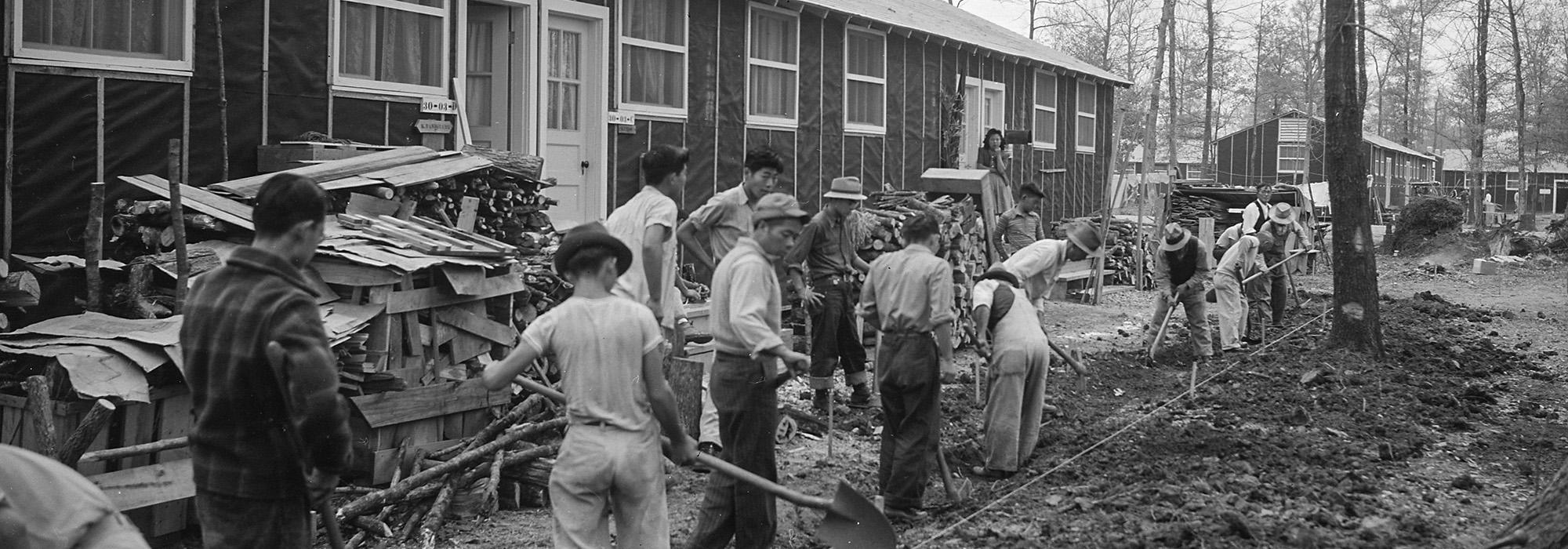Call for Nominations – Landslide 2018: Grounds for Democracy – Threatened and At-risk Cultural Landscapes Associated with Human and Civil Rights
Media Contact: Nord Wennerstrom | T: 202.483.0553 | M: 202.225.7076 | E: nord@tclf.org
Annual Landslide report brings national attention to sites that are overlooked, threatened, or forgotten
Washington, D.C. (February 22, 2018) – The Cultural Landscape Foundation (TCLF) today announced a call for nominations for Landslide, the foundation’s annual thematic report about threatened and at-risk landscapes. The 2018 theme is Grounds for Democracy and calls attention to threatened sites associated with civil and human rights. The collective memory of the struggles for human and civil rights remains embedded in myriad cultural landscapes across the nation—places where many of the basic rights now taken for granted were publicly tested and contested. From the internment camps that forcibly held Japanese Americans, to public squares where women pressed for equal rights, sites where the LGBTQ community found strength in numbers, places where racial segregation was challenged by individual acts of courage, and sites where all types of Americans asserted their rights as workers, such cultural landscapes represent important threads in the tapestry of the American experience, where a single, national identity was forged from disparate voices calling for change. Nominations for Landslide 2018: Grounds for Democracy can be submitted to TCLF’s Editorial Director, Scott Craver (scott@tclf.org). A nomination form is available for download here. The deadline for submission is June 30, 2018. The Landslide 2018: Grounds for Democracy report will be announced in Fall 2018 and will be the subject of an extensive online exhibition. Landscape Architecture Magazine is the Landslide media partner.
A half century has passed since 1968, when marches, protests, riots, and even assassinations seemed to signal that the fabric of the American democracy was unraveling. That explosive year was in many ways the culmination of decades-long struggles by a multitude of Americans to secure the personal liberty and equality promised, but not yet delivered, by their citizenship.
Many of the significant cultural landscapes associated with these events now face threats to their legibility and survival. For example, Lions Municipal Golf Course in Austin, Texas, which is credited with being the South’s first desegregated municipal golf course, could be razed to make way for residential and commercial development. The Jerome Relocation Center, in rural Arkansas, where more than 8,000 Japanese Americans from California and Hawaii were confined from October 1942 to June 1944, may well be forgotten for a lack of adequate funding to maintain the site. And the place in Logan County, West Virginia, where, in 1921, coal miners waged the “Battle of Blair Mountain” (the largest armed uprising in the United States since the Civil War) could literally be blasted from the map by strip-mining activity.
About Landslide
The goal of Landslide, one of TCLF’s three core programs, is to draw immediate and lasting attention to threatened landscapes and unique features. Through web-based news stories, traveling exhibitions, and print publications, Landslide reveals the value of these often-forgotten landscapes. By creating an interactive, online resource, Landslide directs the public to local advocates working to safeguard each site. While many Landslide properties have been saved, such as Nashville, TN’s Civil War-era Fort Negley Park and the Frick Collection’s Russell Page-designed garden on East 70th Street in New York City, others remain at risk or have been lost altogether.
The final Landslide 2018: Grounds for Democracy report of featured sites will be culled from hundreds of submitted nominations and will be based on the significance of the sites and the immediacy of the threats. The report will then be the subject of a coordinated public education and advocacy campaign and will be featured in an online exhibition on TCLF’s website, along with critical information about how the public can become involved. The report will also be featured in a multi-page illustrated article in a forthcoming issue of Landscape Architecture Magazine.
“The exercise of democracy is embedded within our shared cultural landscape legacy,” said Charles A. Birnbaum, TCLF’s President & CEO, “however, that legacy is fragile, and we risk losing vital and tangible connections to the places that have helped shape our identity."
About Landscape Architecture Magazine
Founded in 1910, Landscape Architecture Magazine (LAM) is the monthly magazine of the American Society of Landscape Architects. It is the magazine of record for the landscape architecture profession in North America, reaching more than 60,000 readers who plan and design projects valued at more than $140 billion each year. LAM is available in both print and digital formats by subscription and may also be found each month in more than 700 bookstores across the United States and Canada.
About The Cultural Landscape Foundation
The Cultural Landscape Foundation (TCLF), founded in 1998, is a 501(c)(3) non-profit founded in 1998 to connect people to places. TCLF educates and engages the public to make our shared landscape heritage more visible, identify its value, and empower its stewards. Through its website, publishing, lectures and other events, TCLF broadens support and understanding for cultural landscapes.
# # #



